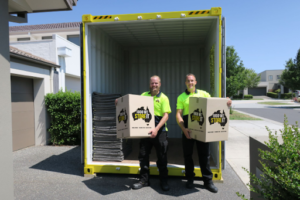Officially, both mean that no cancer is currently detectable in the body. That may be based on scans, bloodwork or some other kind of test, such as a breast biopsy or a bone marrow biopsy. Cancer-free is a little more complicated, because it’s not based on something we can measure.
Contents
What do you say to cancer free?
Acknowledge Them & What They’re Going Through
- This must be hard and I’m sorry that you’ve got to go through this. How can I help you get through it?
- I don’t know how you feel but understand that this must be difficult. …
- I don’t know what to say other than I’m here for you.
How can I live a life with cancer?
Tips for Living a Longer, Fuller Life With Cancer
- Eat Smart.
- Exercise.
- Keep a Healthy Weight.
- Connect With Friends and Family.
- Do Things You Love.
- Stop Smoking.
- Limit Alcohol.
- Keep Your Appointments.
When do you celebrate being cancer free?
If you remain in complete remission for five years or more, some doctors may say that you are cured, or cancer-free.
How do doctors know if you are cancer free?
How Do You Know You’re in Remission? Tests look for cancer cells in your blood. Scans like X-rays and MRIs show if your tumor is smaller or if it’s gone after surgery and isn’t growing back. To qualify as remission, your tumor either doesn’t grow back or stays the same size for a month after you finish treatments.
Does ringing the bell mean you are cancer free?
The bell signals the end of chemotherapy treatment. It is also a warm tradition among cancer patients completing radiation treatments. Patients ring bells in hospitals around the world to mark the end of their treatments.
Is no evidence of disease the same as remission?
No evidence of disease means the same thing as complete remission or complete response. It does not, however, mean that a cancer is cured. With most cancers, there is a chance it could recur at a later date.
What do you say when someone finishes cancer treatment?
Many people often say congratulations after the person finished chemotherapy, but it may not always be a good thing. Instead of saying let’s celebrate, ask, how do you feel now that chemo is over? There are certain stock phrases that people seem to say in tough times, such as everything happens for a reason.
Can you ever be cancer free?
Remission can be partial or complete. In a complete remission, all signs and symptoms of cancer have disappeared. If you remain in complete remission for 5 years or more, some doctors may say that you are cured. Still, some cancer cells can remain in your body for many years after treatment.
Can cancer go away by itself?
Spontaneous remission of cancer is defined as the remission of cancer without any treatment, or with treatment that would not be expected to cause a tumor to decrease as much as it does. Spontaneous remission may be partial or complete and may be temporary or permanent. Also known as St.
What cancer has the lowest survival rate?
The cancers with the lowest five-year survival estimates are mesothelioma (7.2%), pancreatic cancer (7.3%) and brain cancer (12.8%). The highest five-year survival estimates are seen in patients with testicular cancer (97%), melanoma of skin (92.3%) and prostate cancer (88%).
What is the difference between remission and cancer-free?
Remission allows for the possibility that some microscopic, undetectable cancer remains in the body, while cancer-free indicates exactly what it sounds like: the patient is entirely free of cancer.
How long can you live with stable cancer?
Many people live much longer than 5 years after their cancer diagnosis. The term does not mean a person will only survive for 5 years. For example, 90% of people with breast cancer will be alive 5 years after the diagnosis of cancer.
Which cancer has highest recurrence rate?
Some cancers are difficult to treat and have high rates of recurrence. Glioblastoma, for example, recurs in nearly all patients, despite treatment. The rate of recurrence among patients with ovarian cancer is also high at 85%. … Related Articles.
| Cancer Type | Recurrence Rate |
|---|---|
| Glioblastoma2 | Nearly 100% |
What is the hardest cancer to treat?
Most of the cancers, if diagnosed and treated in the early stages, are definitely survivable. … What Is the Most Survivable Cancer?
| Sr. No. (From most to least) | Type of cancer | Patients expected to survive five years after their diagnosis (percent) |
|---|---|---|
| 1 | Prostate cancer | 99 |
| 2 | Thyroid cancer | 98 |
| 3 | Testicular cancer | 97 |
| 4 | Melanoma (Skin cancer) | 94 |
How can I get free cancer naturally?
Consider these cancer-prevention tips.
- Don’t use tobacco. Using any type of tobacco puts you on a collision course with cancer. …
- Eat a healthy diet. …
- Maintain a healthy weight and be physically active. …
- Protect yourself from the sun. …
- Get vaccinated. …
- Avoid risky behaviors. …
- Get regular medical care.
Has anyone survived cancer without treatment?
In rare cases, some people may survive for several months or even a year with stage 4 cancer, with or without treatment. Some studies have found that attempting to aggressively treat cancer that has reached stage 4 can actually lead to a drop in the quality of the patient’s remaining life.
What is a good gift for someone who just finished chemo?
Assemble a gift basket with things a friend might need during and after cancer treatment. Magazines, journals, organic lip balms or aloe to soothe chapped skin, a squishy stress ball, cozy socks, aromatic candles, plus crackers, ginger candy, tea, and/or a favorite snack, are just a few ideas.
What does he rang the bell mean?
1. To be exactly what one wants, needs, or is looking for. I was browsing the lot for a new car, when I saw a used Camaro that really rang the bell.
What does I rang the bell mean?
To seem familiar, remind one of something, or stimulate an incomplete or indistinct memory.
What’s the difference between Ned and remission?
Complete remission means that tests, physical exams, and scans show that all signs of your cancer are gone. Some doctors also refer to complete remission as no evidence of disease (NED). That doesn’t mean you are cured.
What happens after a cancerous tumor is removed?
After a tumor is removed, surgeons check to make sure they have left a negative margin of healthy tissue all the way around the tumor. If no cancerous tissue can be seen growing through this margin, they can say that they have successfully removed all detectable cancer from the area.
Is a negative biopsy good?
A false negative result reports inaccurately that a condition is absent. These are usually due to sampling errors or missing the lesion with the biopsy. A false negative result will require a second biopsy.
Can cancer survivors live a normal life after treatment of cancer yes or no?
When treatment ends, you may want life to return to normal as soon as possible, but you may not know how. Or you may want or need to make changes to your life. Over time, survivors often find a new way of living. This process is commonly called finding a new normal and it may take months or years.
What is the life expectancy after chemotherapy?
During the 3 decades, the proportion of survivors treated with chemotherapy alone increased (from 18% in 1970-1979 to 54% in 1990-1999), and the life expectancy gap in this chemotherapy-alone group decreased from 11.0 years (95% UI, 9.0-13.1 years) to 6.0 years (95% UI, 4.5-7.6 years).
How many rounds of chemo is normal?
You may need four to eight cycles to treat your cancer. A series of cycles is called a course. Your course can take 3 to 6 months to complete. And you may need more than one course of chemo to beat the cancer.
What does survival rate of 5 years mean?
The percentage of people in a study or treatment group who are alive five years after they were diagnosed with or started treatment for a disease, such as cancer. The disease may or may not have come back.
Why do I need chemo if cancer is gone?
The aim of chemotherapy after surgery or radiotherapy is to lower the risk of the cancer coming back in the future. This is called adjuvant treatment. The chemotherapy circulates throughout your body and kills off any cancer cells that have broken away from the main tumour before your operation.
Can Stage 1 cancer be cured?
Stage I is also called early-stage lung cancer. It often can be cured, and most people can expect to live 5 years or longer.



